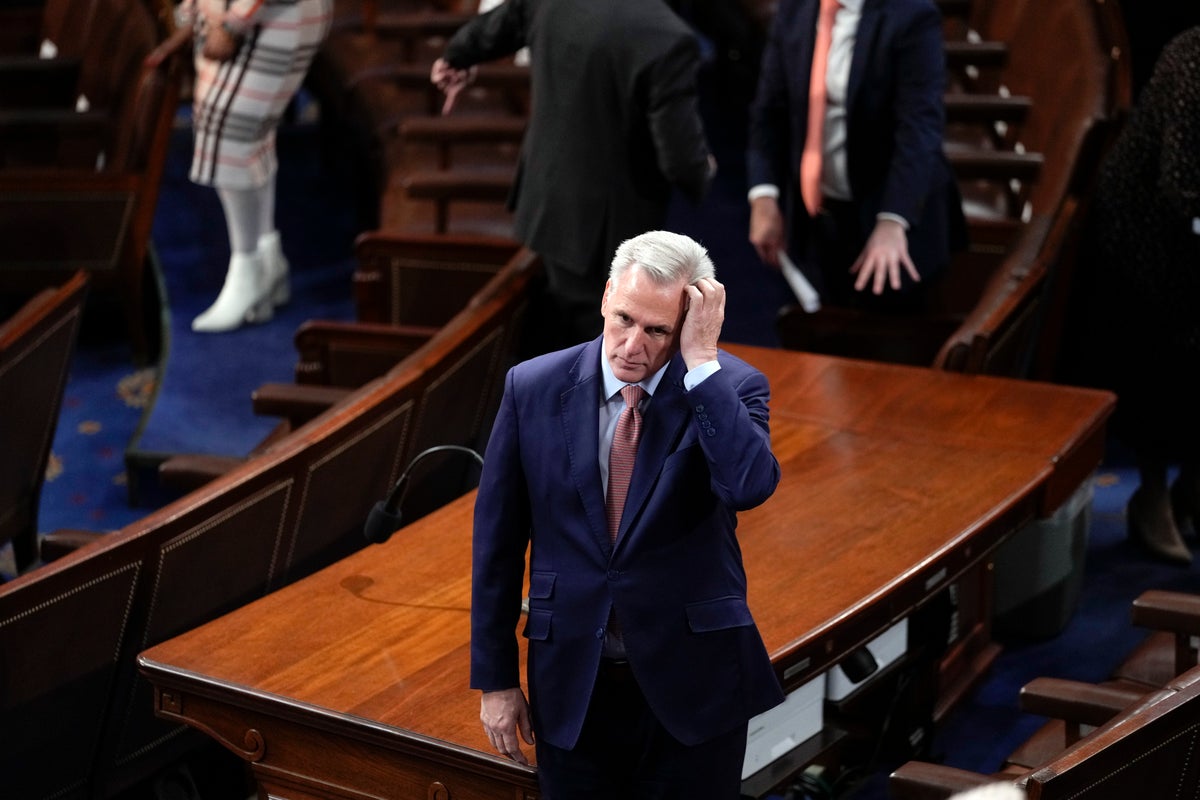
House Republican Leader Kevin McCarthy lost a second round of votes to become House Speaker after a coterie of House conservatives voted against his bid.
A coterie of conservatives voted for Representative Jim Jordan of Ohio despite the fact that Mr Jordan gave an impassioned speech urging his colleagues to support Mr McCarthy. In all, only 203 Republicans voted for Mr McCarthy for Speaker, 15 votes short of the requisite 218 votes needed to obtain the gavel.
Conversely, all 212 Democrats voted for Democratic Leader Hakeem Jeffries.
Republican hardliners had criticised Mr McCarthy’s bid to become speaker of the House of Representatives ever since the GOP won the House majority in November. House conservatives had pushed to include a motion to vacate the chair, which would allow for House Republicans to stage a no-confidence vote. Nineteen Republicans voted against Mr McCarthy’s bid for speaker.
““You cannot demand more responsibly and less accountability,” said Ms Boebert told reporters before the vote.
But Representative Marjorie Taylor Greene of Georgia crticised Mr McCarthy’s opponents for being “destructionists.”
Mr McCarthy’s failure to clear the first hurdle to become speaker marks the first time in almost a century since one was not nominated on the first round of ballots.
In the hours before the ultimate vote, Mr McCarthy engaged in a heated discussion with members of his conference in a closed-door meeting. Representative Andy Biggs of Arizona, one of the leading voices in the House Freedom Caucus, staged a symbolic challenge against Mr McCarthy. Mr Biggs earned 10 votes from Republicans, while other Republicans like Representatives Lauren Boebert of Colorado and Anna Paulina Luna of Florida voted for Representative Jim Jordan of Ohio.
But that seemed to be insufficient for conservative Republicans. Many saw Mr McCarthy as insufficiently conservative and his concessions were seen as too little too late. Representatives like Matt Gaetz of Florida, Matt Rosendale of Montana and Bob Good of Virginia view Mr McCarthy as a continuation of the Republican establishment they do not trust.
“I guess as they emerge, we shall see,” Mr Rosendale said before the vote.
As a result, many of them chose not to vote for him, but have yet to name a viable alternative around whom varying Republican factions could coalesce.
The lack of a vote for speaker means that Republicans will be unable to have subpoena power in their investigations of the Biden administration and the president’s son Hunter Biden.
In 2015, when House Speaker John Boehner announced his resignation, Mr McCarthy sought the speakership but aburptly dropped out, paving the way for Paul Ryan to ascend to the speakership. When Mr Ryan left Congress in 2019, Mr McCarthy became the top Republican.
Republicans won a majority in the House of Representatives in November. But the victory was by a relatively thin margin, meaning Mr McCarthy had little room to work secure the requisite 218 votes to become House Speaker. Every Democrat voted against his nomination.







